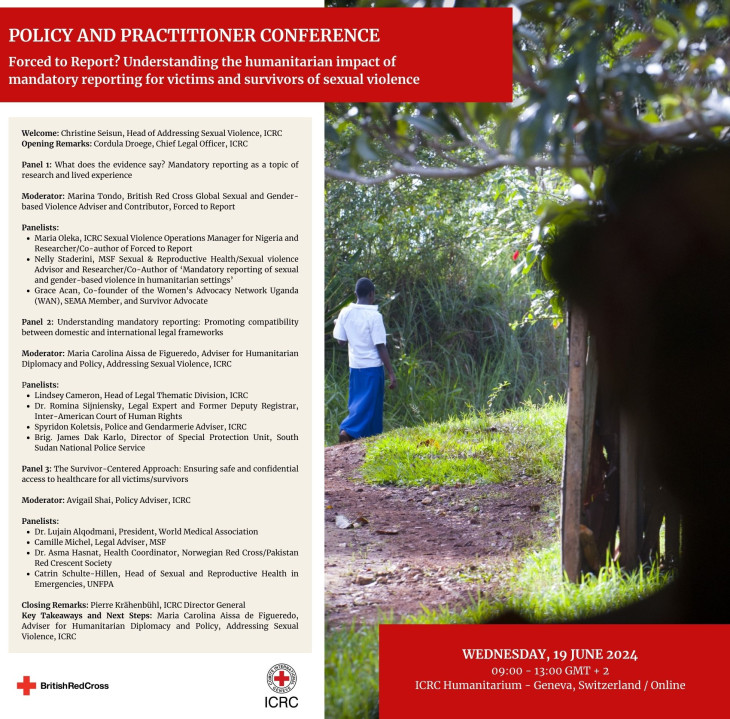Mandatory reporting is a law and/or policy obligation for health care personnel to report cases of sexual or gender-based violence to law enforcement agencies, often without requiring the consent of the adult victim/survivor.
While the introduction of mandatory reporting may be well intended to address impunity, prevent future crimes and protect victims/survivors, it is potentially incompatible with international law and may create legal and ethical dilemmas for healthcare providers.
In 2020, the International Committee of the Red Cross (ICRC) and the British Red Cross (BRC) published their operational research, Forced to Report: Mandatory Reporting of Sexual Violence in Armed Conflict. This multi-country study analyzed the impact of mandatory reporting requirements on the health-seeking behaviors of adult victims survivors of sexual violence and the unintended consequences such requirements may have when applied in humanitarian settings.
Over the last four years, the ICRC and BRC – together with its Red Cross/Red Crescent Movement – have continued to implement key policy recommendations from the study. Through direct engagement with authorities, communities, and other service providers, significant advancements have been made to better address some of the humanitarian consequences of mandatory reporting to better prioritize victims and survivors' safe access to quality care.
This year the ICRC and BRC marked the International Day for the Elimination of Conflict-Related Sexual Violence by co-hosting a half-day hybrid event that builds on the global expertise developed over the last four years titled, "Forced to Report? Understanding the Humanitarian Impact of Mandatory Reporting."
Over the course of three expert panels, we brought together policymakers and practitioners to review the existing evidence base, analyze the different legal and law enforcement approaches, and better understand how mandatory reporting may unintentionally complicate safe access to healthcare for victims and survivors in humanitarian settings.
This hybrid event took place at the ICRC headquarters in Geneva, and it aimed to explore these critical questions with experts from across the gender, health, legal, and law enforcement fields, sharing insights that will be invaluable for anyone who is committed to ensuring the safety and dignity of victims and survivors of sexual and gender-based violence.
PS. French and Arabic interpretation were provided online via Zoom for those who requested it through the registration link.















